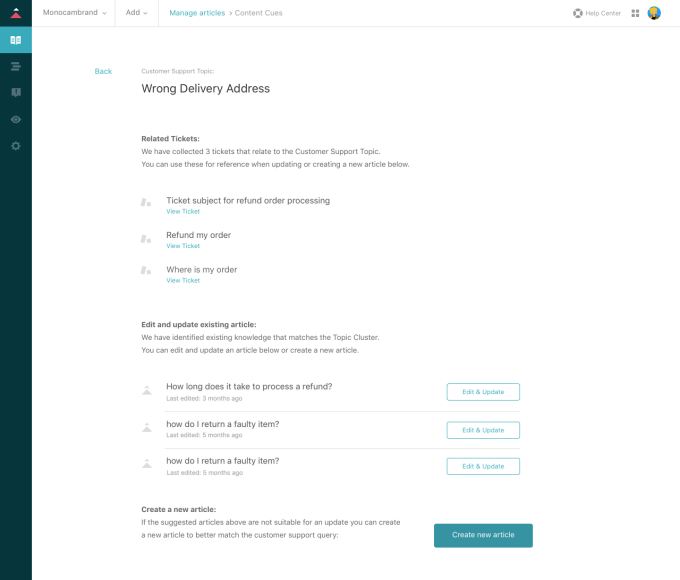Over the last several years, Zendesk has been making the transition from a company that caters mostly to small businesses to one with larger enterprise customers — and their revenue reflects that. The company announced it has crossed the $.5 billion annual run rate since its last earning report in February. It also announced a new enterprise content management product specifically geared for large customer service organizations.
The company was just shy of the goal after its most recent earnings report (pdf) with $123.4 million for the quarter. They say they have since passed that goal, but have not announced it until now, based on revenue that closed March 31, 2018. The company is projecting between $555 and $565 million in revenue for fiscal 2018, according to its last earnings report. When you consider that when the company went public in 2014, it was at $100 million in annual revenue, reaching a half billion dollars in 4 years is significant.
Zendesk reports that 40 percent of its revenue now comes from larger enterprise customers, which they define as 100 seats or more. The company is predicting it will cross the $1 billion run rate by some time in 2020.
“When we IPOed, our run rate was $100 million. We had great momentum, but we were seen as SMB scaling to mid market. To reach a half a billion dollars shows momentum for building up enterprise market and enterprise products,” Adrian McDermott, Zendesk’s president of products told TechCrunch.
As for the new product, it’s called Guide Enterprise and it’s designed to provide those larger customer service organizations with a knowledge base and a content management platform for editorial planning and review. The idea is to empower customer service reps to write up solutions to problems they encounter and build up that knowledge base as part of the natural act of doing their jobs.

Zendesk Guide Enterprise. Photo: Zendesk
That gives organizations a couple of advantages. First of all, the reps can find their fellow employees’ notes and not have to reinvent the wheel every time, and the notes and articles they write can pass through editorial review and become part of the permanent knowledge base.
When customers hit the site or app, they can access solutions to common problems before having to talk to a human. The platform also includes reminders to check the content regularly so the knowledge base stays fresh and stale content is removed.
Finally, the company is applying AI to the problem. The artificial intelligence component can review the corpus of information currently available in the entire knowledge base and identify gaps in content that the company might want to add, allowing for proactive content creation.
The content management idea isn’t new to Zendesk. McDermott says they shipped the first content management years ago, but what’s different is that this is geared to larger organizations and that the AI piece allows for some automation of this process. “The new workflow brings rich AI concepts like content analytics into the publishing flow,” he said.
from TechCrunch https://ift.tt/2GSVkJG
via IFTTT

0 comments: